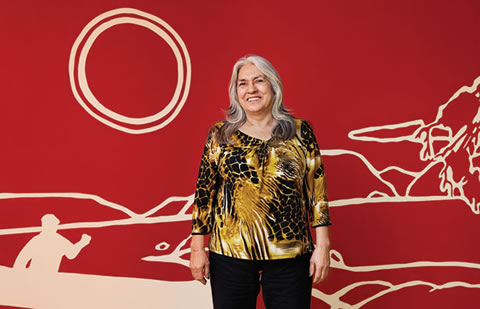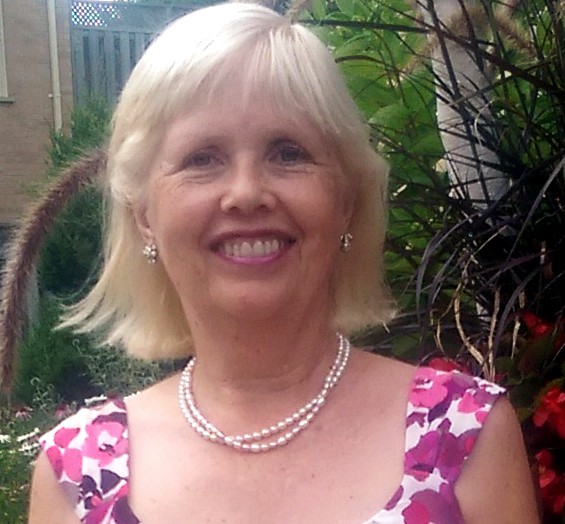As the traditional teacher at U of T’s First Nations House, Lee Maracle doesn’t stand up at the front of a classroom and lecture. She doesn’t teach a course. Instead, she helps individual students – some of whom are struggling with the issues that can arise with moving from a reserve to a metropolitan city.
Maracle, who grew up on a reserve in North Vancouver, was one of the first native children to attend an off-reserve school. It was an onerous trail for a six-year-old to blaze. “At school I was a ‘dirty little Indian’,” she recalls. Maracle and her 22 siblings had lots of love in their family, but no electricity, no running water and little food.
When a childhood suicide attempt failed, Maracle began to believe her ancestors must have a plan for her. Her ancestors were right. In 1975, Maracle became one of the first Aboriginal authors in Canada to be published. She followed her memoir Bobbi Lee: Indian Rebel with six novels, a poetry collection and countless short stories. In her writings, she takes the reader inside Aboriginal family life for an intimate view of ancient native beliefs colliding head-on with Canada’s dominant culture.
Maracle, who is a member of the Stó:Lō Nation, has made numerous contributions to the University of Toronto. She is an instructor in the Aboriginal Studies program, and has served as a visiting professor with U of T’s Women’s Studies program. And previous to her appointment as First Nations House’s traditional teacher in 2008, she was its inaugural writer-in-residence.
The ability to communicate ideas in essay format is integral to success in most post-secondary education programs. Since Aboriginal stories are spoken or sung, as writer-in-residence Maracle encouraged the students to find their writing voice by asking them to first speak the story they want to set down in their essay.
In her current role, Maracle’s office door is always open and students wander in to ask her advice about academic, traditional knowledge or personal problems. Sometimes, she performs an ancient smudging ceremony for students. “Smudging is one way we communicate with our higher power, our ancestors,” explains Maracle. “The ceremony reminds us that we are magnificent in our near-relevance, but we’re part of something huge.”
Maracle is magnanimous with her counsel. “I’m willing to help anyone – native or non-native, student, staff, faculty,” she says. “There’s not many of us who escape the business of trauma.”
Recent Posts
People Worry That AI Will Replace Workers. But It Could Make Some More Productive
These scholars say artificial intelligence could help reduce income inequality
A Sentinel for Global Health
AI is promising a better – and faster – way to monitor the world for emerging medical threats
The Age of Deception
AI is generating a disinformation arms race. The window to stop it may be closing






3 Responses to “ Wisdom of the Elder ”
Some words for Vera, Edna and especially, Lee
Oh beautiful Woman of the Earth
ground me
connect me
remind me
that my Spirit Soars
and my Spirit Soars
with yours
and All Creation.
Lead me back
to Courage
to Love
to Grow
to Be
One with my Dream.
Is this why we came, those years ago
in search of the Truth
buried so deep
beneath the ashes and the tears
beneath the fear and the grief
the Simple Truth
waiting patiently
waiting. The Truth
the Simple Truth
waiting so patiently.
The Simple Truth
set free with the Drum
the Simple Truth
set free with the Song
the Simple Truth
set free with the Dance
the Simple Truth
set free in the Joy
The Simple Truth
set free
to soar
in All Creation.
Beautiful Women of the Earth
silenced for so long
my Spirit Knows Your Pain
Your Spirit knows My Pain
you share your Vision
I see my Vision
you ground me
connect me
remind me
that my Spirit Soars
and my Spirit Soars
with yours
and All creation. ~
I am interested to learn more about this story. What would be the best way to get in touch with Lee Maracle and ask her specifically about the food culture of First Nations?
Lee Maracle can be reached at Lee [dot] Maracle [at] utoronto [dot] ca